GICJ appeals to High Commissioner for Human Rights and Special Rapporteurs on the mass human rights violations in Iraq
Geneva International Centre for Justice has sent urgent appeals to the UN High Commissioner for Human Rights, as well as the Special Rapporteur on the promotion and protection of human rights and fundamental freedoms while countering terrorism, the Special Rapporteur on extrajudicial, summary or arbitrary execution, and the Working Group on Arbitrary Detention, informing them of a new campaign being undertaken in Iraq by Prime Minister Al-Maliki and his government, and requesting that they investigate the mass human rights violations resulting from the execution of that campaign.
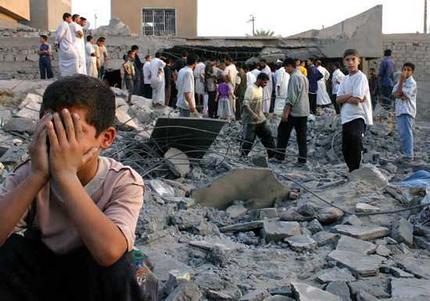
Under the campaign, officially named “Thár al-Shuhadá” or “Martyrs’ Revenge”, over a thousand people were arbitrarily arrested and scores killed in just a two week period—all under the guise of combating terrorism. The first phase of the “Martyrs’ Revenge” operation took place from the beginning of August 2013 to 12 August 2013, the end of the Muslim holiday Eid Al-Fitr. In line with the common official rhetoric used to justify arrests, all those arrested and killed were referred to as “terrorists”. As of 20 August 2013, the number of arrests had reached 1,500.
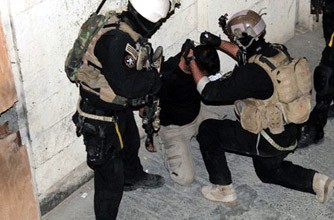
The allegations that all those arrested were terrorists were refuted by Iraqi Parliament members. On 15 August, Mohammed Iqbal, a representative from Ninevah made it clear that parliament supports efforts to detain terrorists, but stressed that those arrested in the recent campaigns are innocent. Iqbal pointed to the fact that the same story has been repeated time and again since the onset of the occupation—hundreds of “terrorists” are arrested only to later be found innocent—the innocent always being the victims, attacked by both terrorists and the government. Mr. Sabah Karbout, President of the Anbar Governing Council, which includes part of Lake Tharthār, where many arrests were made, has publicly called for the release of those detained and affirmed that those arrested are innocent. He added that many of those present at the lake were farmers, fishermen and families vacationing and celebrating Eid Al-Fitr.
The sectarian characteristics of the campaign and the enduring consequences that they are capable of producing demonstrate Maliki’s disregard and indifference for peace efforts and cannot be ignored. The name of the campaign itself, “Martyrs’ Revenge”, is indicative of Maliki’s promotion of revenge and not only gives a sense of justification for the mass arrests being executed, but incites sectarian support for a highly unjustly-executed operation. On 20 August in an interview with Al-Sharqiya News, Ms. Etab Al-Douri, also a member of parliament, expressed her belief that those arrested are innocent and stressed that the campaign is strategically sectarian in nature. She stated that if one examines the geographic location of the campaign, it becomes evident that it is systematically concentrated in particular sect-dominated areas, and that a review of past operations and campaigns demonstrates that it is always certain sects that are targeted.
Also of concern is that “Martyrs’ Revenge” is being conducted largely using militia tactics. This means that not only are militias involved in the actual operation, but residential areas are being attacked, property destroyed, restrictions on movement employed, humiliation used, and arrests are being conducted indiscriminately, outside of legal norms, without arrest warrants and without evidence. The level of force and power being employed is also disproportional and extremely dangerous. Operations thus far have included the use of tanks, helicopters, army vehicles and artillery. The use of such weapons and machinery seems unnecessary for the execution of arrests and more importantly, increases the possibility of seriously injuring and killing innocent civilians and those being sought, which with dozens dead already, is a very real concern.
Maliki’s actions with regards to the “Martyrs’ Revenge” campaign are not that of a responsible statesman looking to avoid bloodshed; instead they incite anger, violence and divisions. The demands of the Iraqi people are simple and legitimate—they are demanding basic services such as food security, education, adequate housing, water and healthcare and employing a violent military response to quell these demands is highly condemnable.
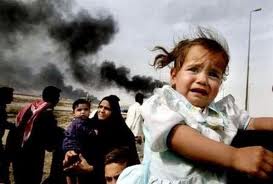
Further demonstrating the urgency of this situation is a speech given by Maliki on 18 August 2013, in which he stated that the current military operations will continue forever. Speaking in the province of Babylon, Maliki assured that he will not take into account any condemnations against these operations and promising to end any and all demonstrations against the political process in Iraq and declaring that as was the case in Egypt, his government is capable of ending the demonstrations, and could do so in less than an hour. These threats are especially dangerous in a country where terrorism and any association to it is punishable with death; where torture is widely practiced for obtaining confessions, and where due process is the exception.
GICJ strongly opposes the current wave of mass human rights violations being conducted under the “Martyrs’ Revenge” campaign and in its appeals, urged the High Commissioner, the Working Group and the relevant Special Rapporteurs to exert pressure on the Iraqi government to cease this dangerous and unjust operation and to ensure that all those responsible for its resulting arbitrary arrests and executions are brought to justice.
Geneva International Centre for Justice and its partner NGOs have submitted a written statement on the topic of arbitrary detentions for the 24th session of the Human Rights Council and will also discuss the issue during the session.
النص بالعربية: هنا
Documenting and reporting human rights violations in Iraq
| Executions | Human Rights Violations in the context of fight against terrorism | Peaceful protests | ||||
 |
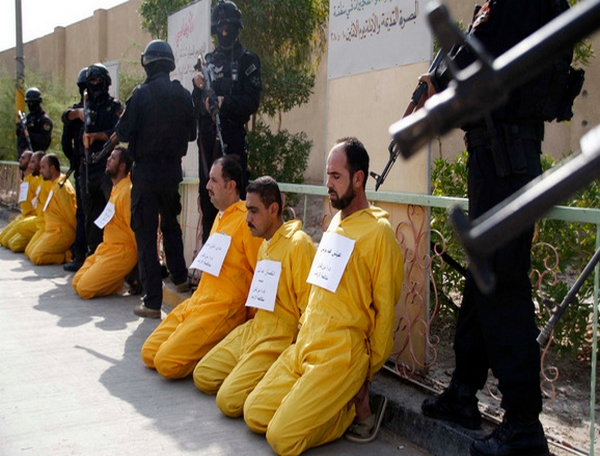 |
 |
||||
 |
 |
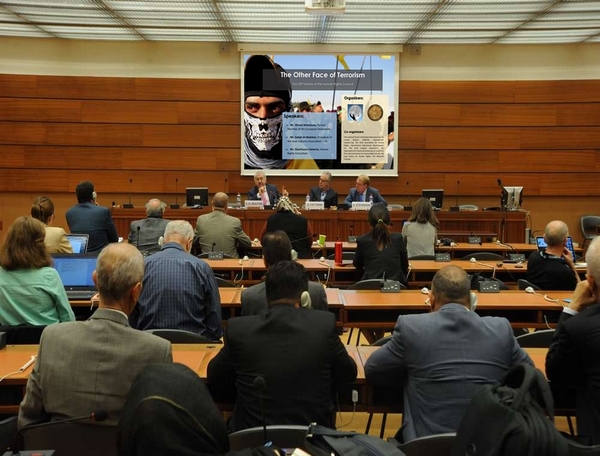 |
||||




